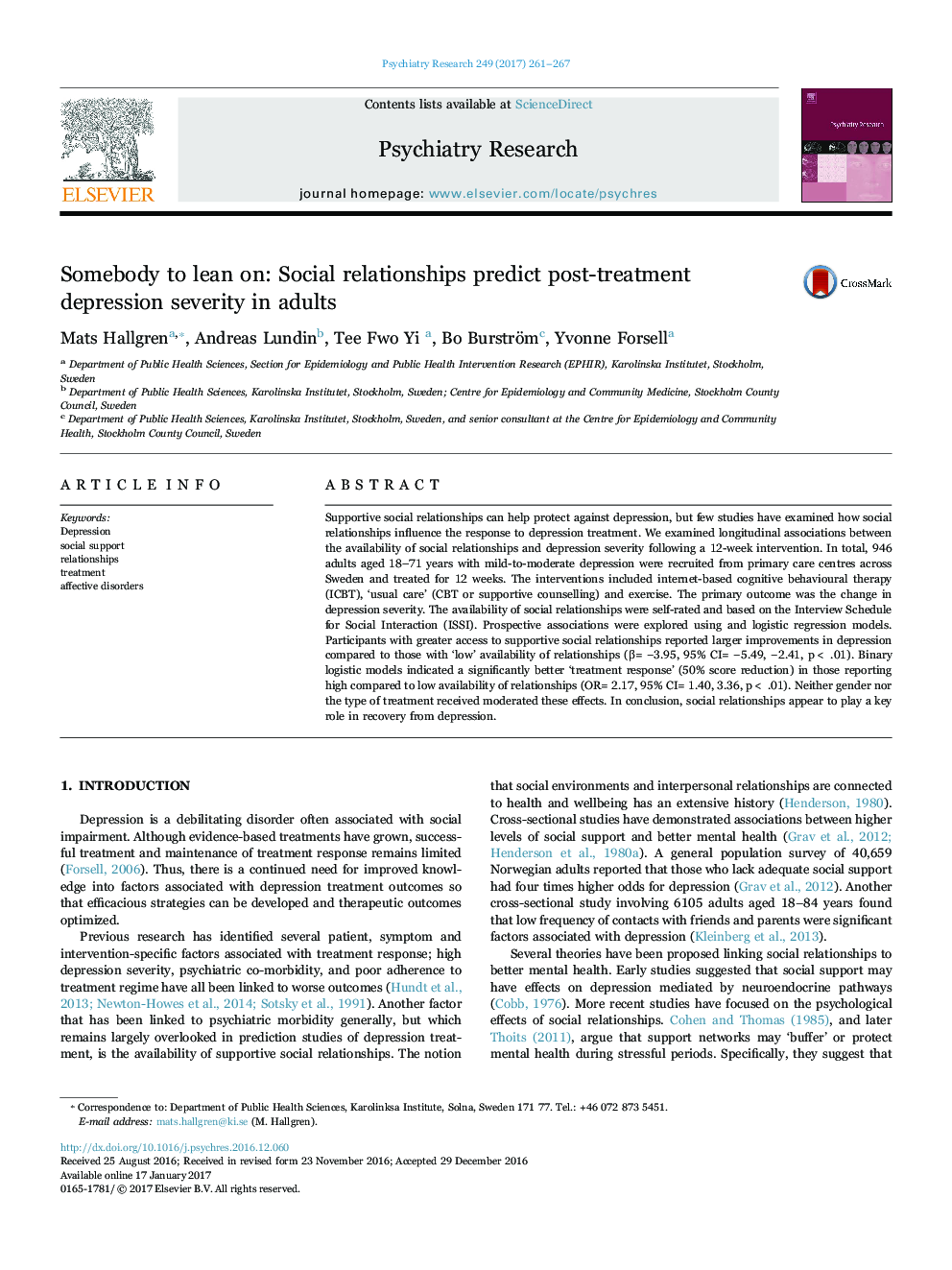| Article ID | Journal | Published Year | Pages | File Type |
|---|---|---|---|---|
| 4933734 | Psychiatry Research | 2017 | 7 Pages |
Abstract
Supportive social relationships can help protect against depression, but few studies have examined how social relationships influence the response to depression treatment. We examined longitudinal associations between the availability of social relationships and depression severity following a 12-week intervention. In total, 946 adults aged 18-71 years with mild-to-moderate depression were recruited from primary care centres across Sweden and treated for 12 weeks. The interventions included internet-based cognitive behavioural therapy (ICBT), 'usual care' (CBT or supportive counselling) and exercise. The primary outcome was the change in depression severity. The availability of social relationships were self-rated and based on the Interview Schedule for Social Interaction (ISSI). Prospective associations were explored using and logistic regression models. Participants with greater access to supportive social relationships reported larger improvements in depression compared to those with 'low' availability of relationships (β= â3.95, 95% CI= â5.49, â2.41, p< .01). Binary logistic models indicated a significantly better 'treatment response' (50% score reduction) in those reporting high compared to low availability of relationships (OR= 2.17, 95% CI= 1.40, 3.36, p< .01). Neither gender nor the type of treatment received moderated these effects. In conclusion, social relationships appear to play a key role in recovery from depression.
Related Topics
Life Sciences
Neuroscience
Biological Psychiatry
Authors
Mats Hallgren, Andreas Lundin, Tee Fwo Yi, Bo Burström, Yvonne Forsell,
